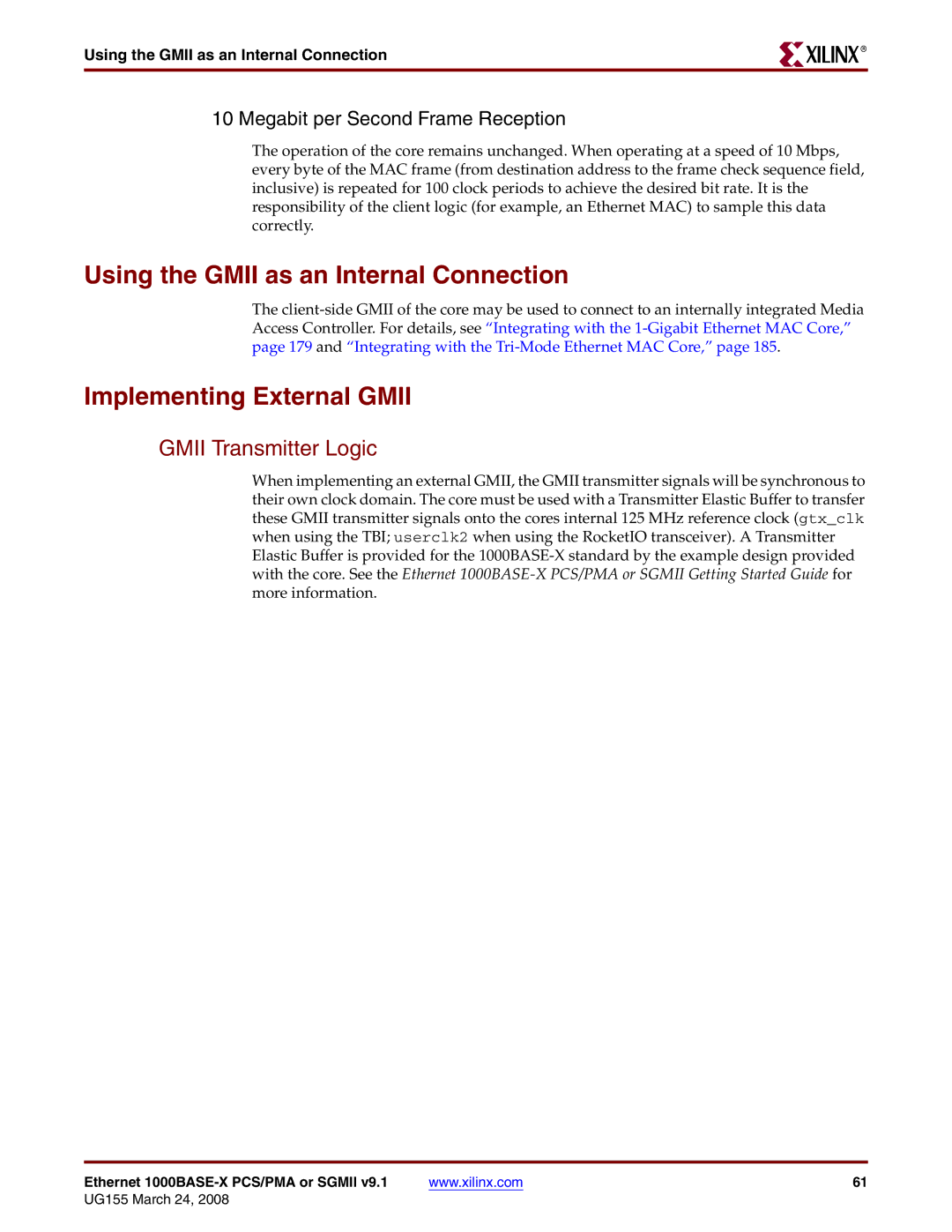
Using the GMII as an Internal Connection
R
10 Megabit per Second Frame Reception
The operation of the core remains unchanged. When operating at a speed of 10 Mbps, every byte of the MAC frame (from destination address to the frame check sequence field, inclusive) is repeated for 100 clock periods to achieve the desired bit rate. It is the responsibility of the client logic (for example, an Ethernet MAC) to sample this data correctly.
Using the GMII as an Internal Connection
The
Implementing External GMII
GMII Transmitter Logic
When implementing an external GMII, the GMII transmitter signals will be synchronous to their own clock domain. The core must be used with a Transmitter Elastic Buffer to transfer these GMII transmitter signals onto the cores internal 125 MHz reference clock (gtx_clk when using the TBI; userclk2 when using the RocketIO transceiver). A Transmitter Elastic Buffer is provided for the
Ethernet | www.xilinx.com | 61 |
